Run-11 Transverse Jets: VPDMB Embedding Including 5 - 6 GeV/c Bin
Unmatched Fractions
One relevant question before adding in the 5-6 GeV/c bin is what fraction of reconstructed jets do not match to parton jets? In Run-9 ~20% of jets in the 6-7.1 GeV/c bin did not match to a parton jet. Here, in principle, the fraction should be lower. However, for VPDMB, I take all jets below 16.3 GeV/c. Thus, there is no trigger-filtering in my calculation. This fact coupled with the growing soft cross section seems to conspire to raise the unmatched fraction in 2011. It seems that the trigger-bias from Run-9 actually helps in this arena over Run-11 min-bias! Reducing the cone radius to 0.5 does appear to help to some degree. I have not run over the data trees with R = 0.5 so I cannot yet say how much is the cost in statistics.
Table 1
| Bin [GeV/c] | R = 0.6 | R = 0.5 | |
|---|---|---|---|
| Unmatched (to parton jet) Fraction | Unmatched (to particle jet) Fraction | Unmatched (to parton jet) Fraction | |
| 5-6 | 0.445149 | 0.105468 | 0.369943 |
| 6-7.1 | 0.343303 | 0.102521 | 0.288886 |
| 7.1-8.4 | 0.300243 | 0.102494 | 0.256054 |
| 8.4-9.9 | 0.224948 | 0.10803 | 0.137968 |
| 9.9-11.7 | 0.178408 | 0.0882758 | 0.152845 |
| 11.7-13.8 | 0.159218 | 0.103019 | 0.158194 |
| 13.8-16.3 | 0.000924567 | 2.02448e-05 | 0.000333341 |
Jet Histograms
The following histograms represent jets from anti-kT with R = 0.6.
Figure 1
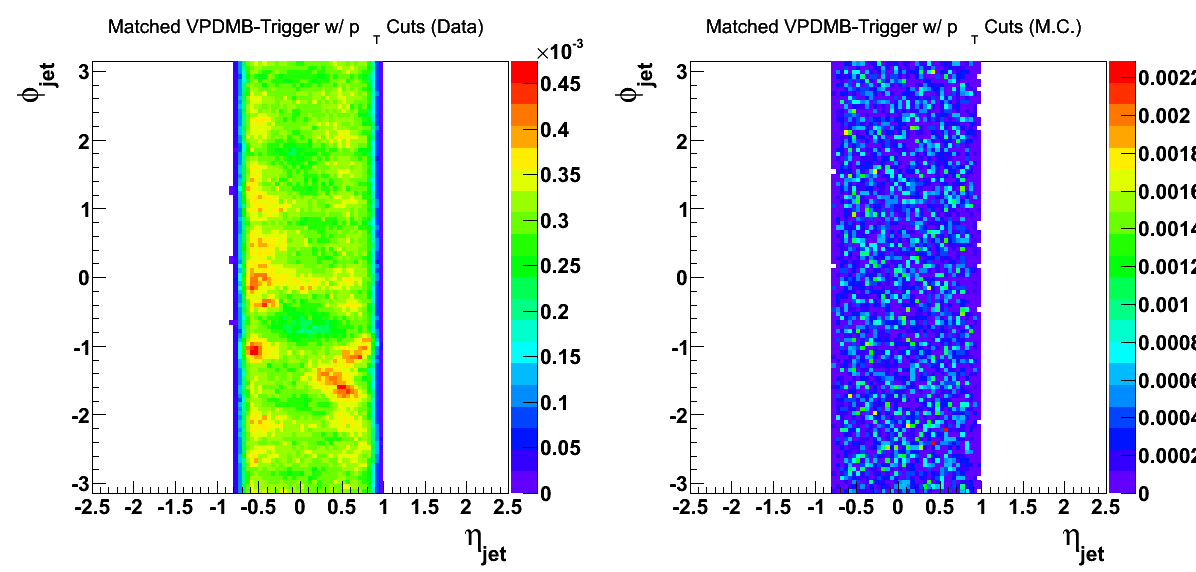
Figure 2
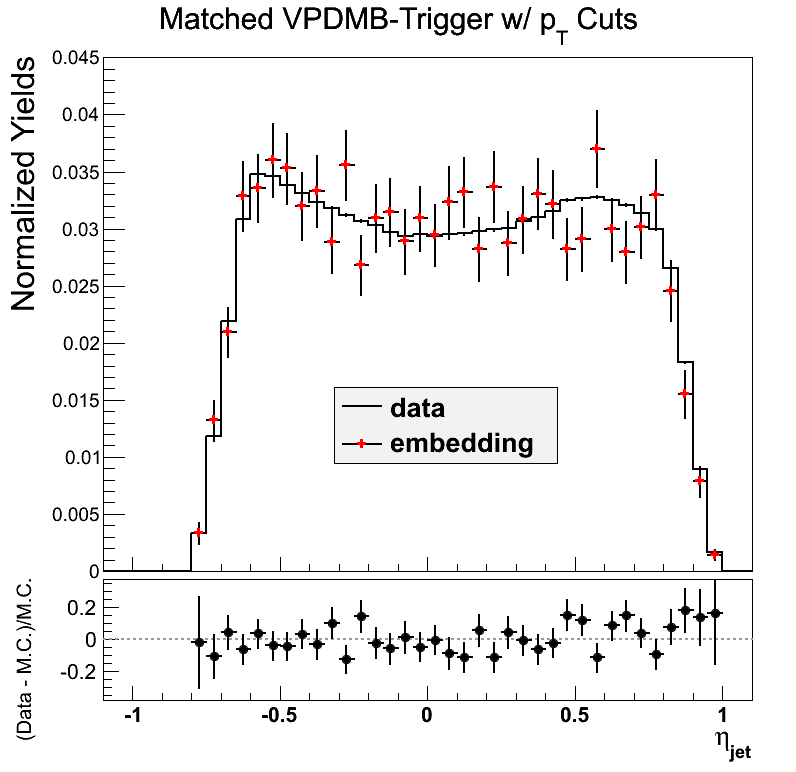
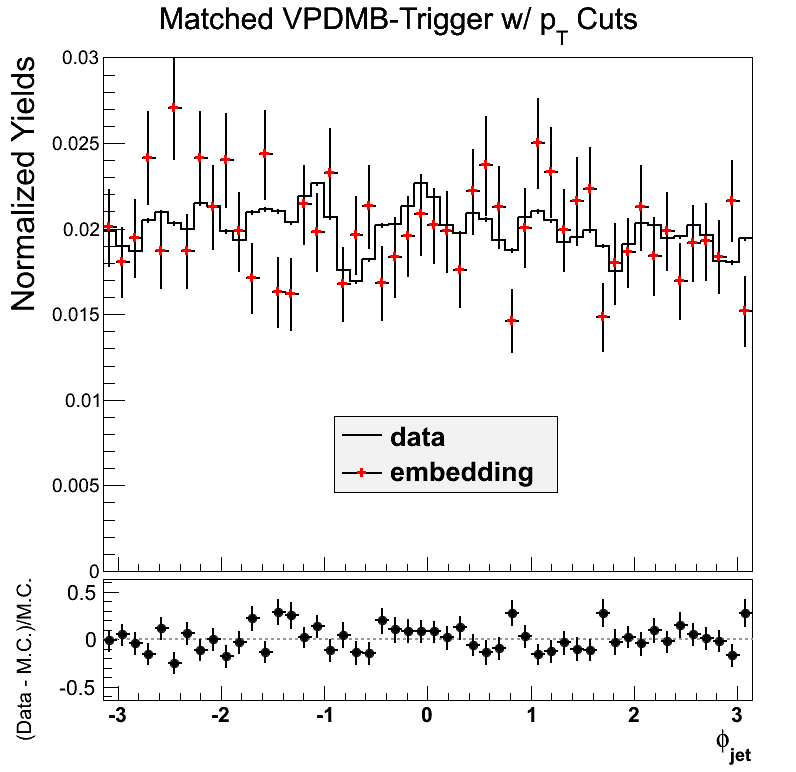
Figure 3
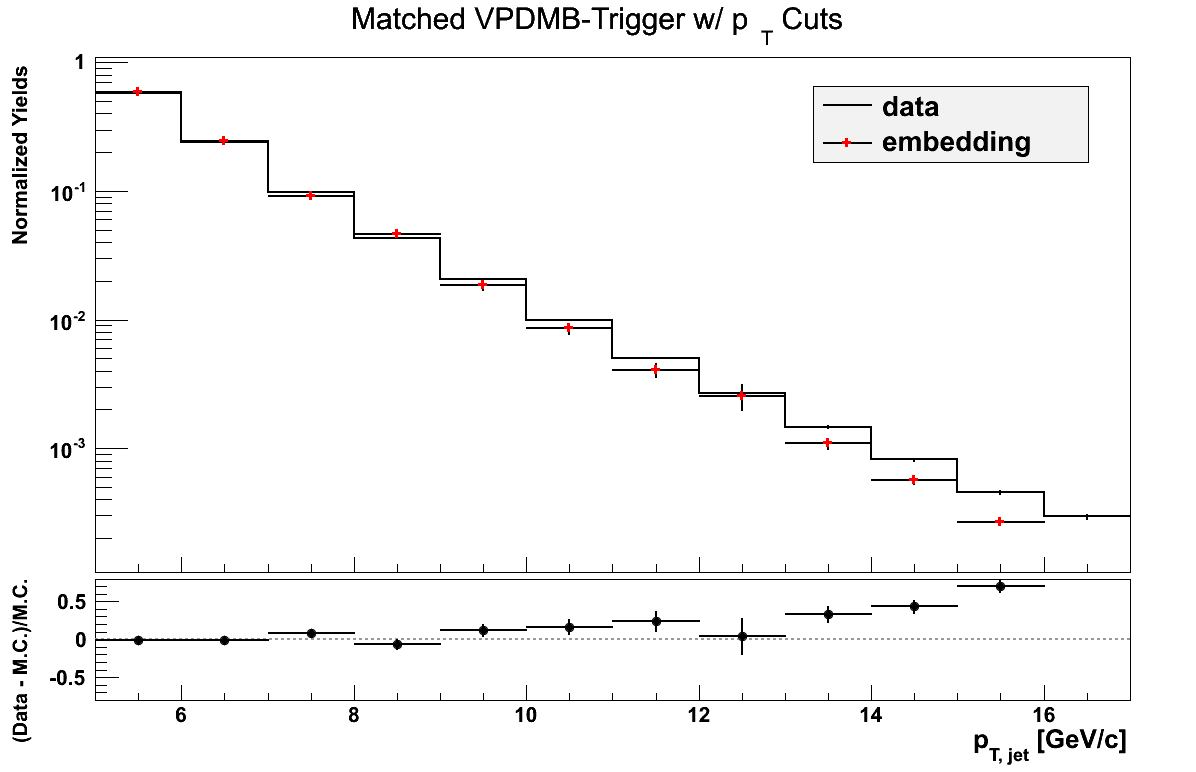
Figure 4
| Parton Jets | Particle Jets |
|---|---|
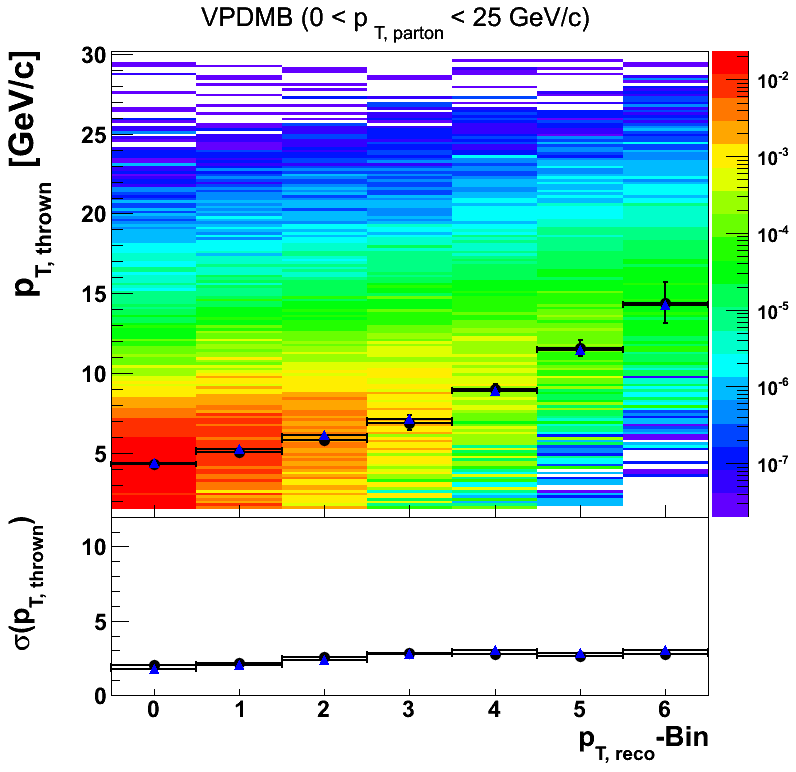 |
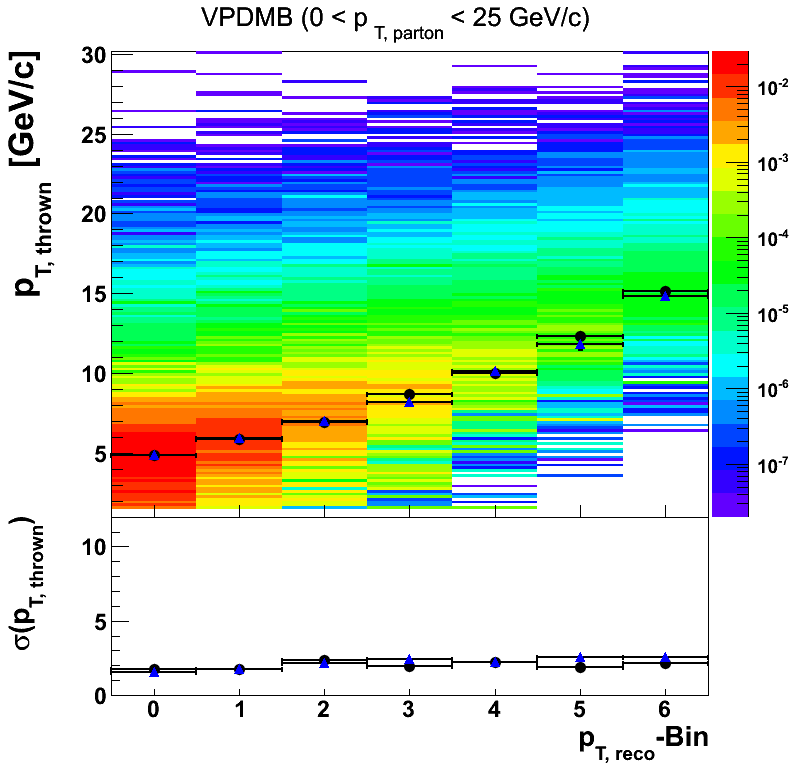 |
Table 2: Parton Jets
| Bin | mean (calc) | mean err (calc) | sigma (calc) | mean (fit) | mean err (fit) | sigma (fit) |
|---|---|---|---|---|---|---|
| 0 | 4.376700 | 0.050112 | 1.782332 | 4.298699 | 0.099149 | 1.995898 |
| 1 | 5.255551 | 0.070918 | 2.032022 | 5.048214 | 0.167162 | 2.171887 |
| 2 | 6.119759 | 0.114194 | 2.387166 | 5.832943 | 0.186998 | 2.531867 |
| 3 | 7.114054 | 0.177052 | 2.742883 | 6.901127 | 0.464553 | 2.823919 |
| 4 | 8.850526 | 0.242213 | 3.054184 | 8.986211 | 0.331816 | 2.786197 |
| 5 | 11.426827 | 0.275702 | 2.838530 | 11.541767 | 0.500606 | 2.639954 |
| 6 | 14.243042 | 0.174677 | 3.040576 | 14.394541 | 1.286680 | 2.772319 |
Table 3: Particle Jets
| Bin | mean (calc) | mean err (calc) | sigma (calc) | mean (fit) | mean err (fit) | sigma (fit) |
|---|---|---|---|---|---|---|
| 0 | 4.841764 | 0.036212 | 1.567174 | 4.870950 | 0.058215 | 1.754405 |
| 1 | 5.916643 | 0.053980 | 1.722295 | 5.891218 | 0.164114 | 1.726686 |
| 2 | 7.008965 | 0.096950 | 2.126271 | 6.959531 | 0.155951 | 2.333823 |
| 3 | 8.161178 | 0.153885 | 2.437989 | 8.686677 | 0.207796 | 1.989351 |
| 4 | 10.104818 | 0.188913 | 2.194968 | 9.990243 | 0.248133 | 2.203013 |
| 5 | 11.791698 | 0.368663 | 2.554170 | 12.303599 | 0.276353 | 1.898854 |
| 6 | 14.837272 | 0.146978 | 2.562654 | 15.116610 | 0.152352 | 2.163757 |
By rights I should calculate the pT-shifts for the two η windows as well. However, in checking the values, they are consistent with those of the combined window within statistical uncertainties.
Figure 5
| Parton Jets | Particle Jets |
|---|---|
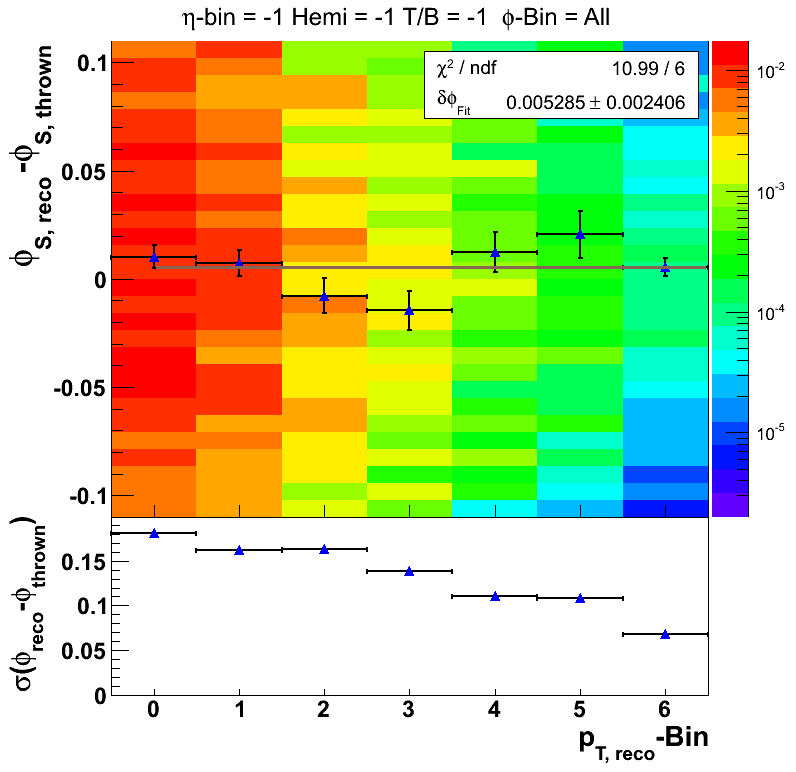 |
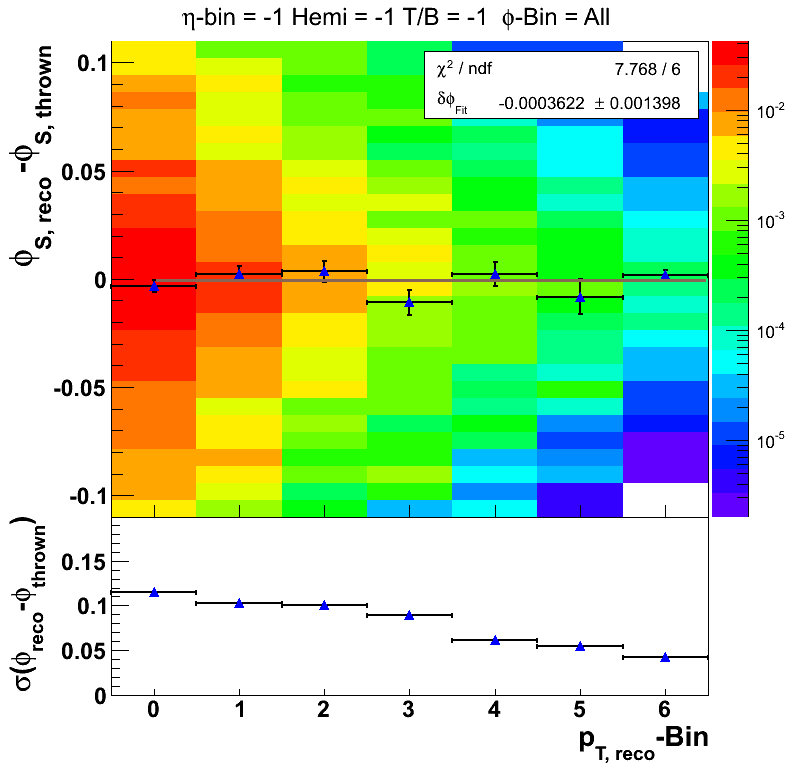 |
Figure 6
| Parton Jets | Particle Jets |
|---|---|
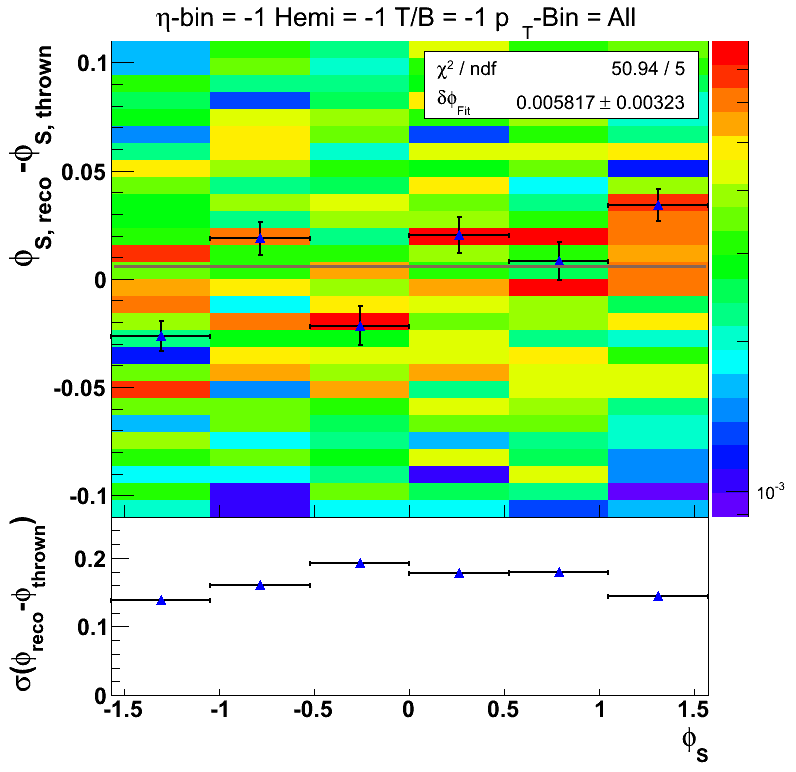 |
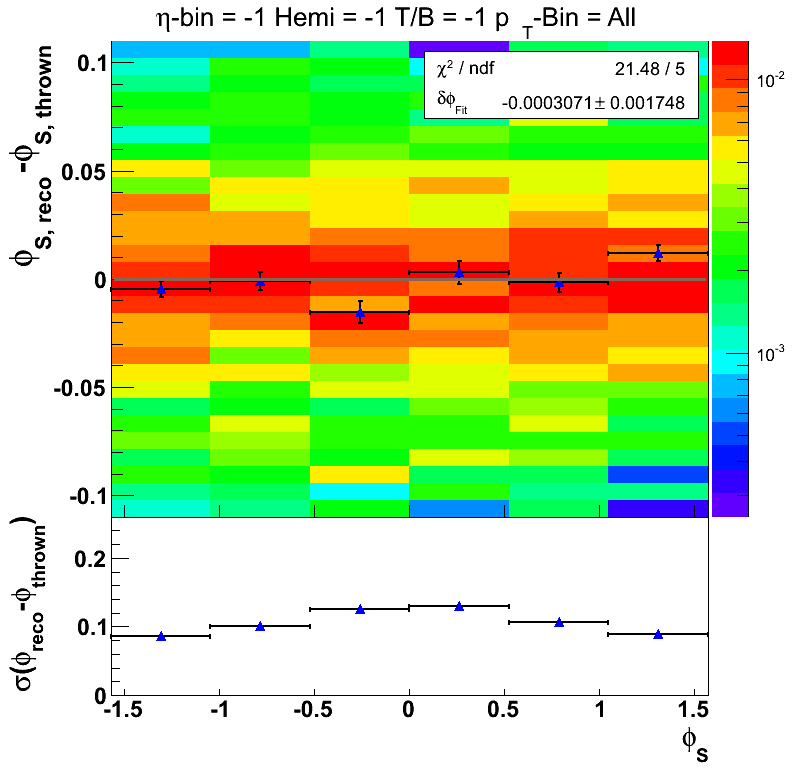 |
Track Histograms
Figure 7
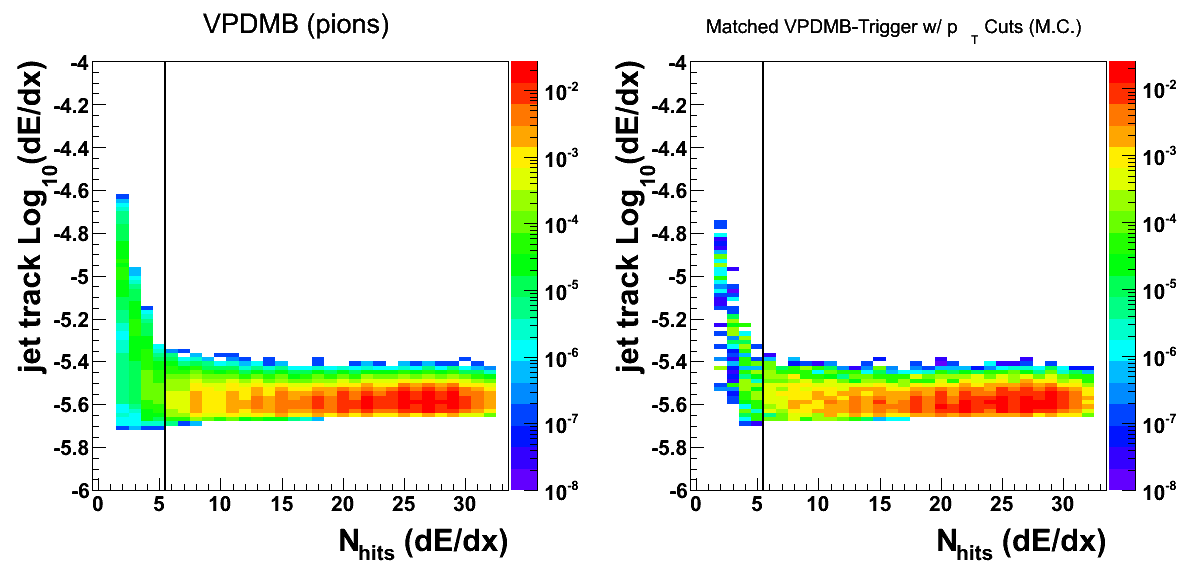
The issue from last week involving stray tracks above the pion band appears to be resolved by enforcing a cut on the number of hits used in the dE/dx calculation. Here, I require more than 5. The cut appears to resolve the issue entirely.
Figure 8
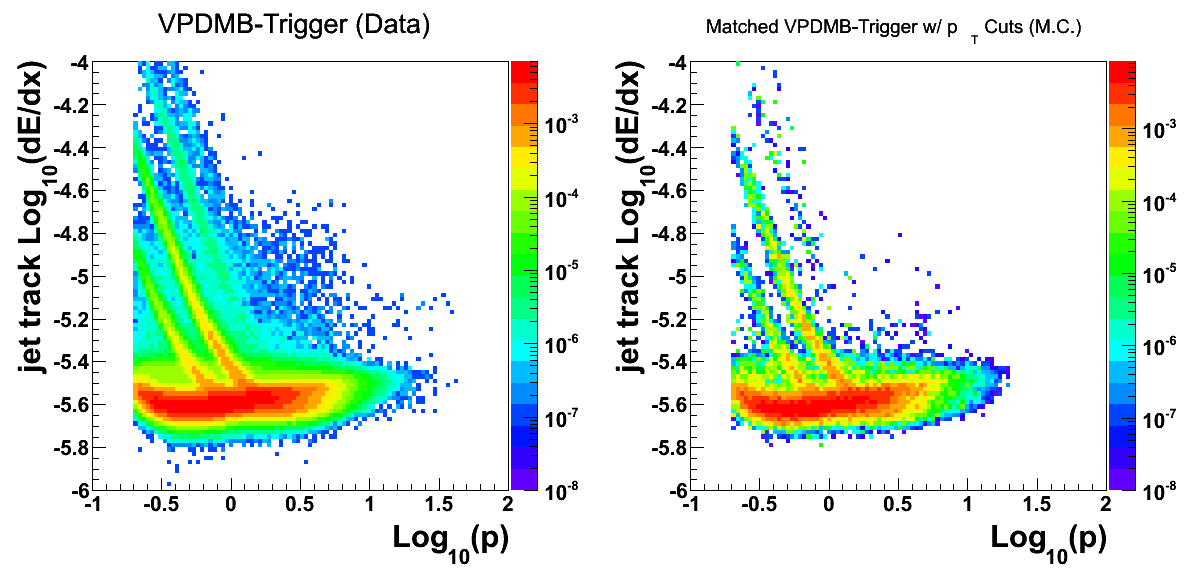
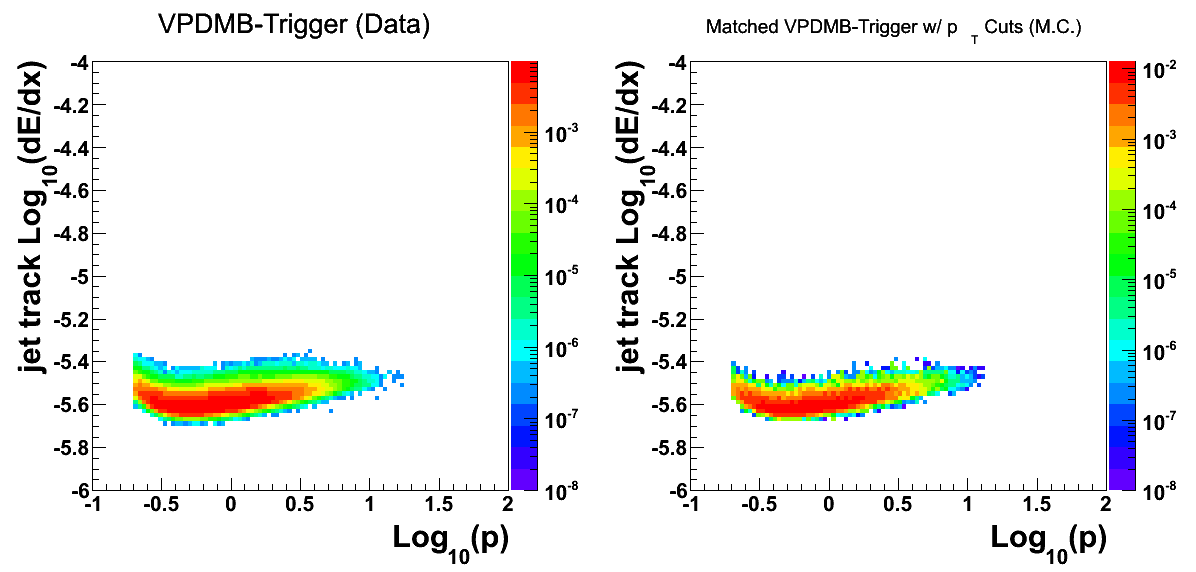
Figure 9
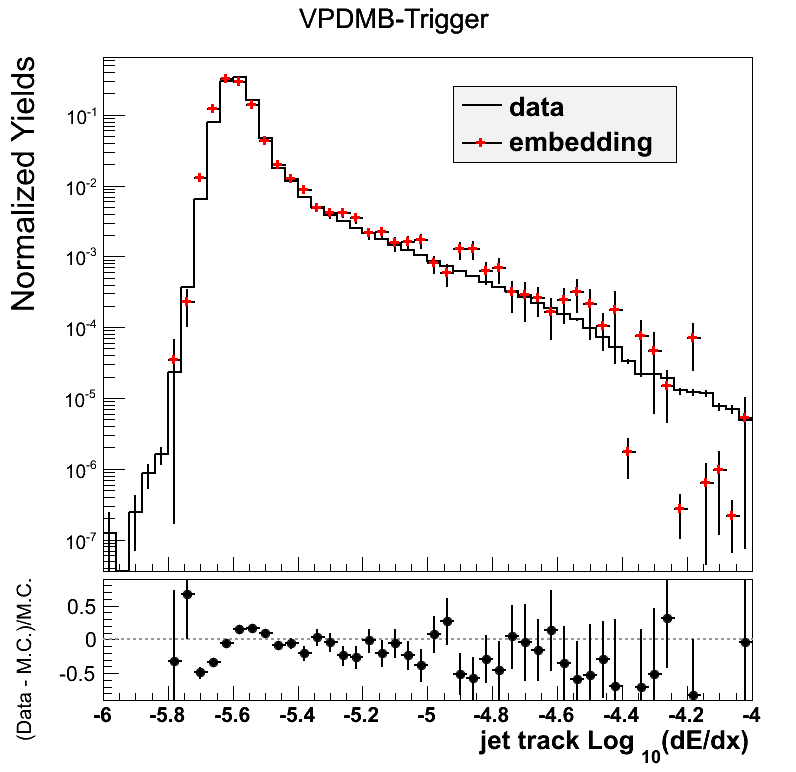
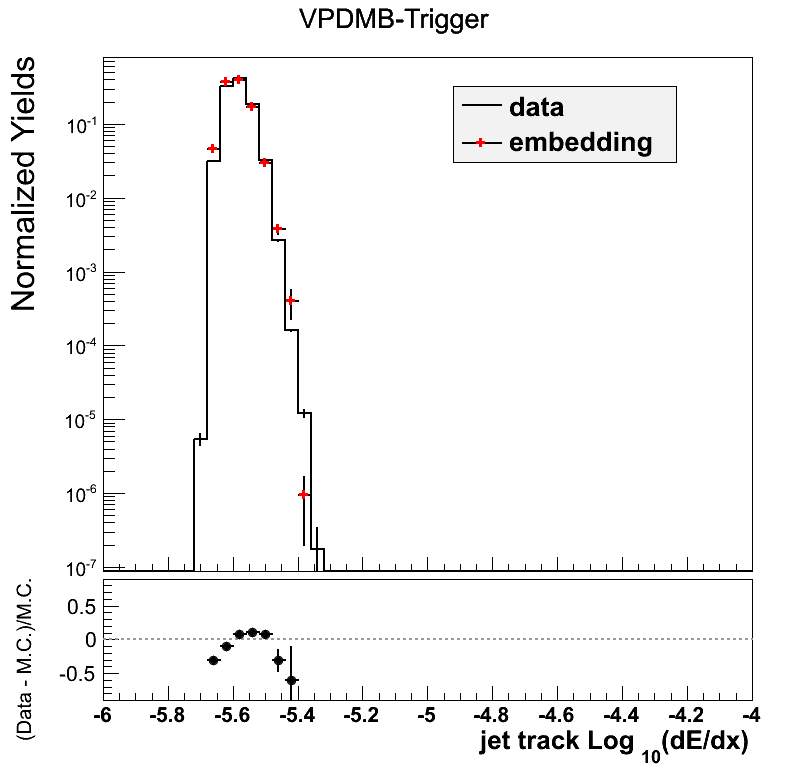
Figure 10
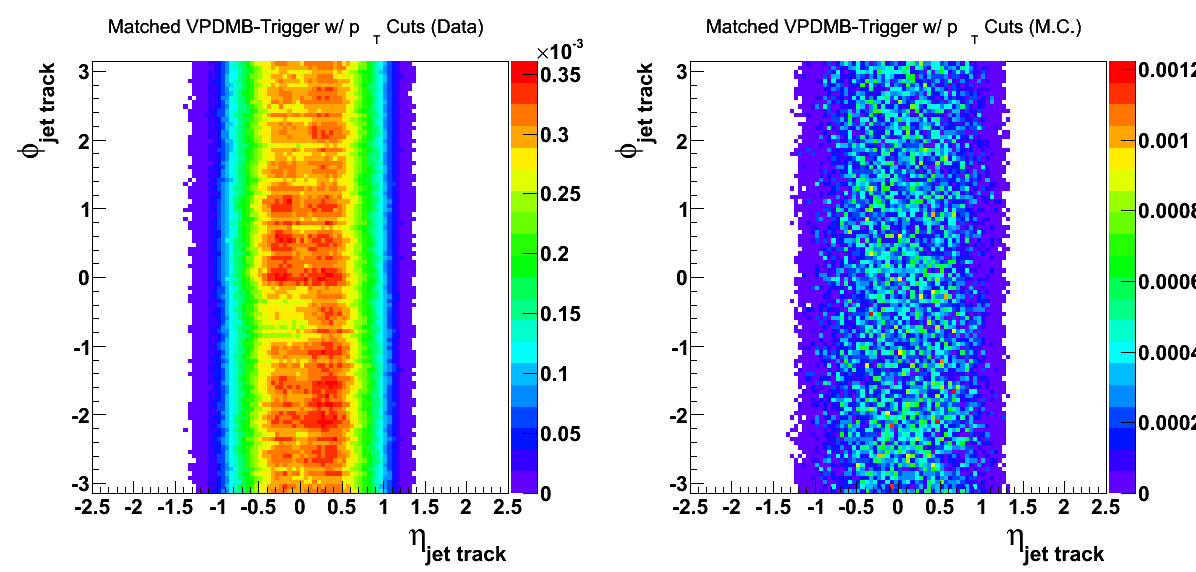
Figure 11
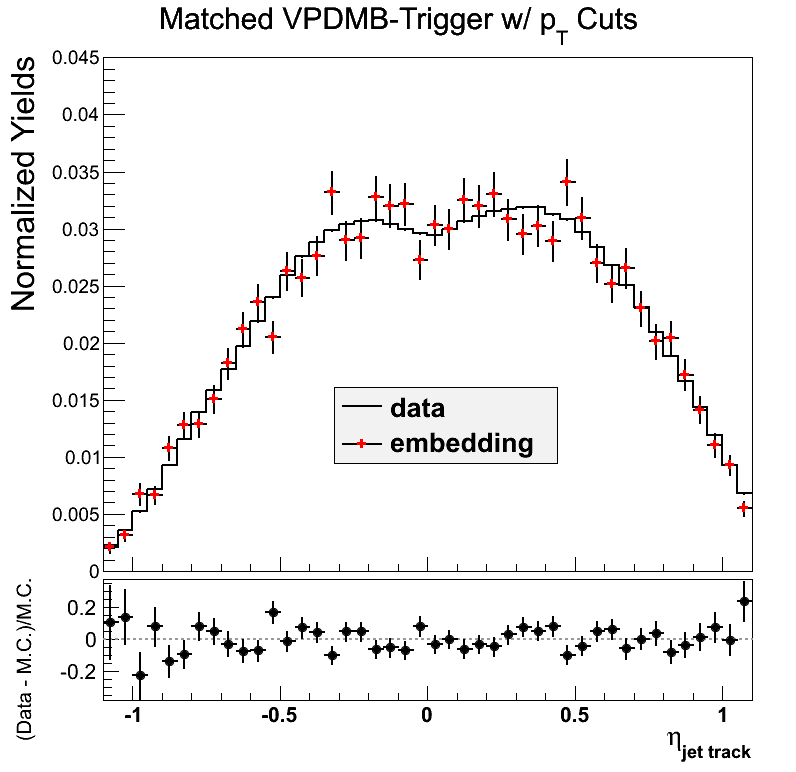
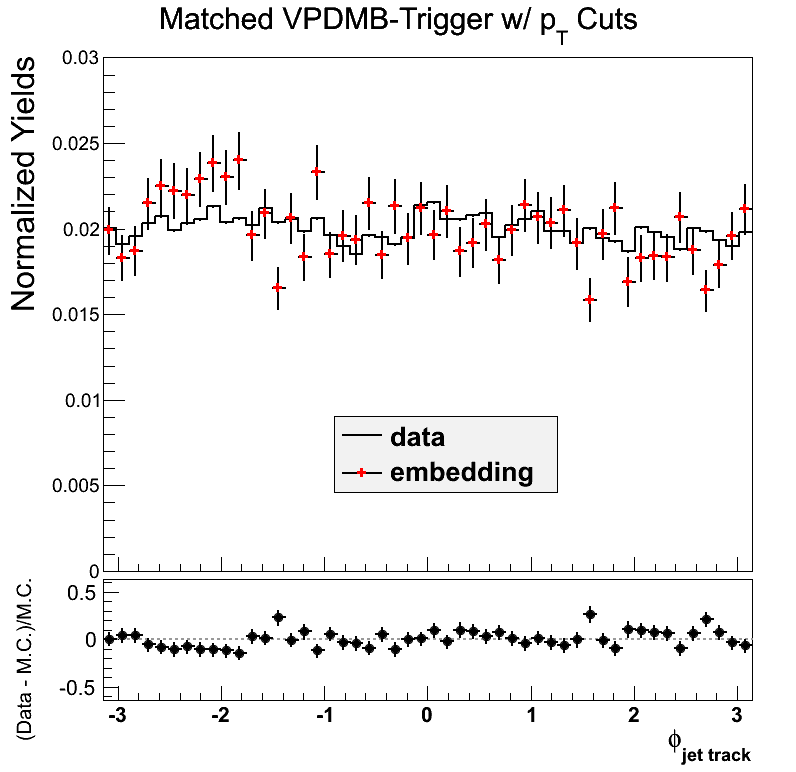
Figure 12
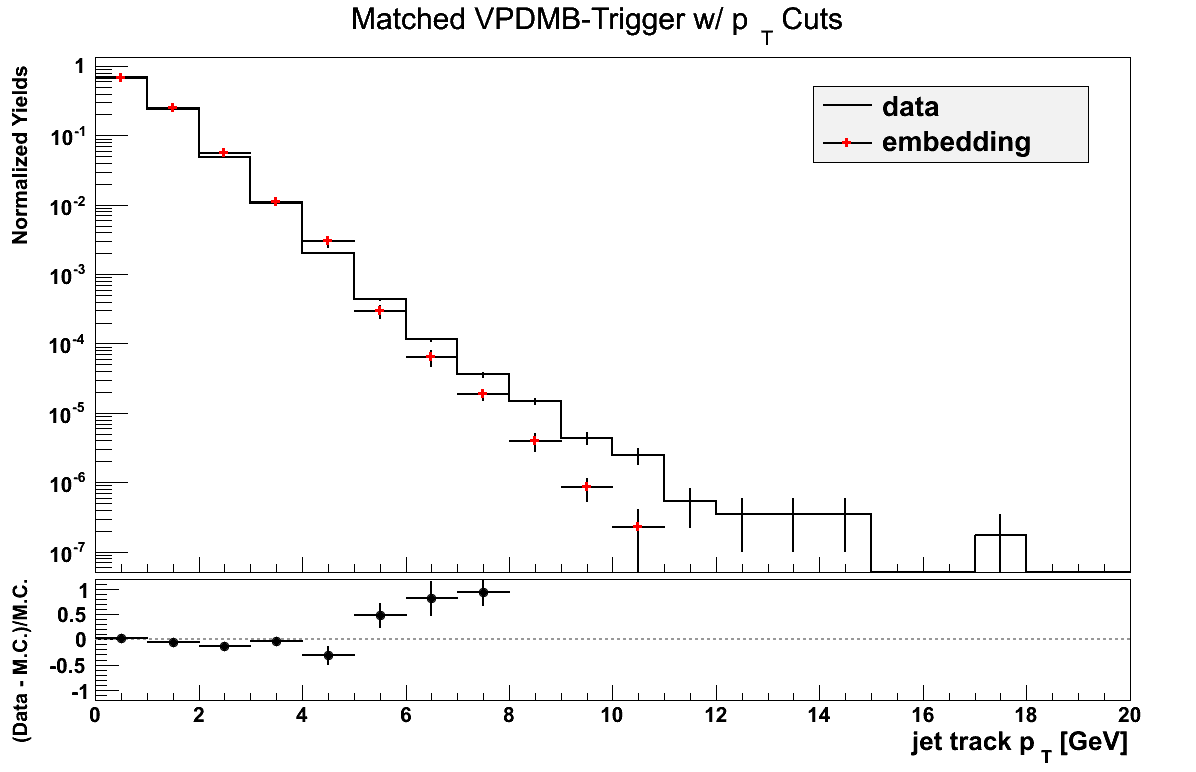
Figure 13
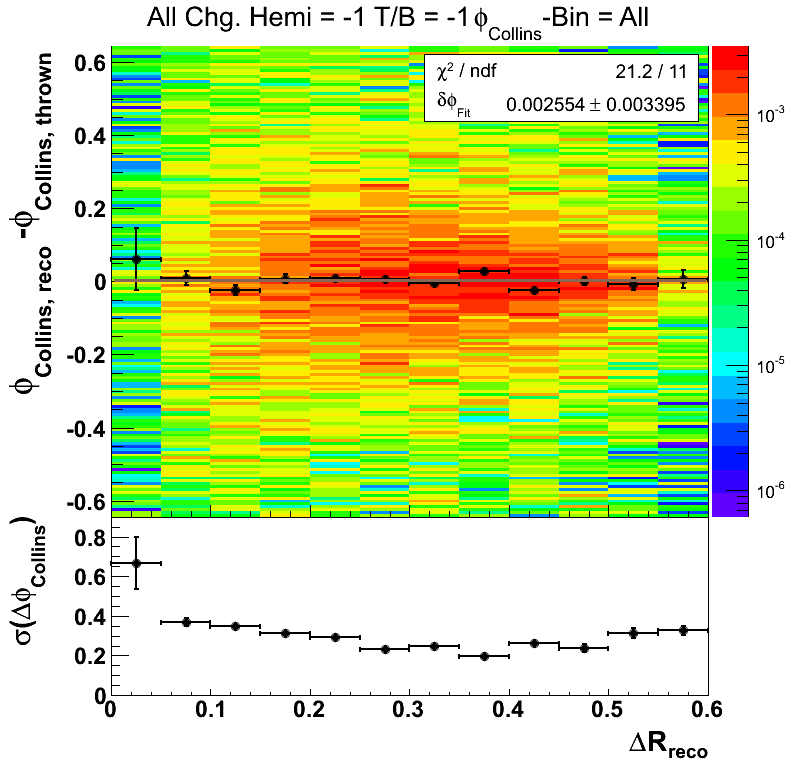
The current cut is ΔR > 0.1. This means the resolution is ~0.36 or lower. A resolution of 0.4 corresponds to a damping of ~7.7%, while a resolution of 0.36 corresponds to a damping of ~6.3%.
- drach09's blog
- Login or register to post comments
